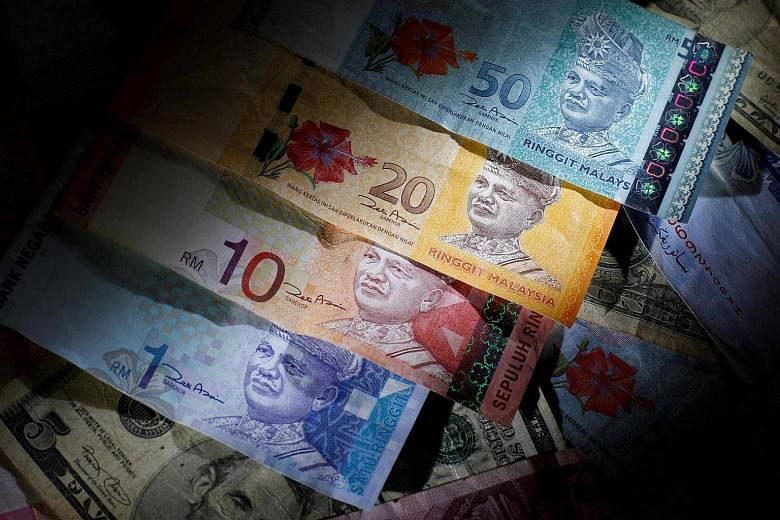SINGAPORE (REUTERS) - The Malaysian ringgit slipped to its weakest level in nearly 19 years versus the US dollar on Tuesday (Dec 20) as prospects of a faster pace of US interest rate rises in 2017 kept the greenback well bid.
The ringgit fell to 4.4790 per dollar as of 1:56pm, its weakest level since January 1998, during the Asian financial crisis. It last stood at 4.4780, little changed on the day.
The Singapore dollar hit a seven-year low of 1.4507 per US dollar. It later turned higher, however, with market participants citing suspected US dollar-selling intervention by Singapore's central bank.
The South Korean won and the Thai baht touched multi-month lows, as downward pressure on Asian currencies persisted after the US Federal Reserve raised interest rates last week and signalled three hikes in 2017, more than it had expected earlier.
The won hit a low of 1193.0 per dollar at one point, its weakest level since early June. The baht fell to 35.911, its lowest level since late January.
While financial markets were rattled by deadly incidents in Turkey and Germany on Monday, analysts said the impact on emerging Asian currencies seemed to be limited.
A truck ploughed into a crowded Christmas market in central Berlin on Monday evening, killing 12 people and injuring 48 others while the Russian ambassador to Turkey was shot dead as he gave a speech at an Ankara art gallery.
The incidents "do not appear to eclipse the optimism over the US economy," said Philip Wee, senior currency economist for DBS Bank, adding that comments from Fed chair Janet Yellen on Monday reinforced the positive view on the US economy.
In a speech on Monday, Yellen noted that college graduates were entering the strongest jobs market in nearly a decade.
Emerging Asian currencies have declined broadly since early November, as the dollar and US bond yields jumped on expectations that US President-elect Donald Trump's proposals for infrastructure spending and tax cuts will boost economic growth and inflation.
The rise in US bond yields has stirred worries about the risk of capital outflows from emerging markets, putting downward pressure on emerging Asian currencies.
The rupiah slipped 0.1 per cent versus the dollar.
An Indonesia-based trader said the rupiah was pressured partly by year-end demand for dollars among local firms.

